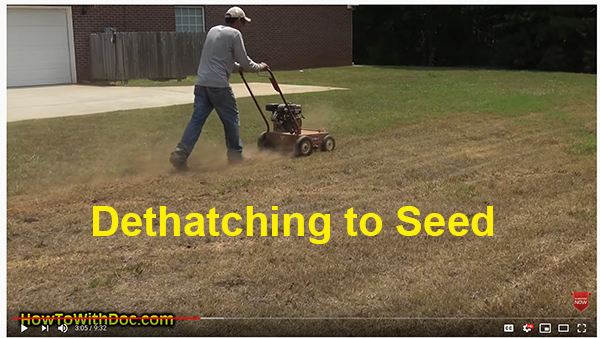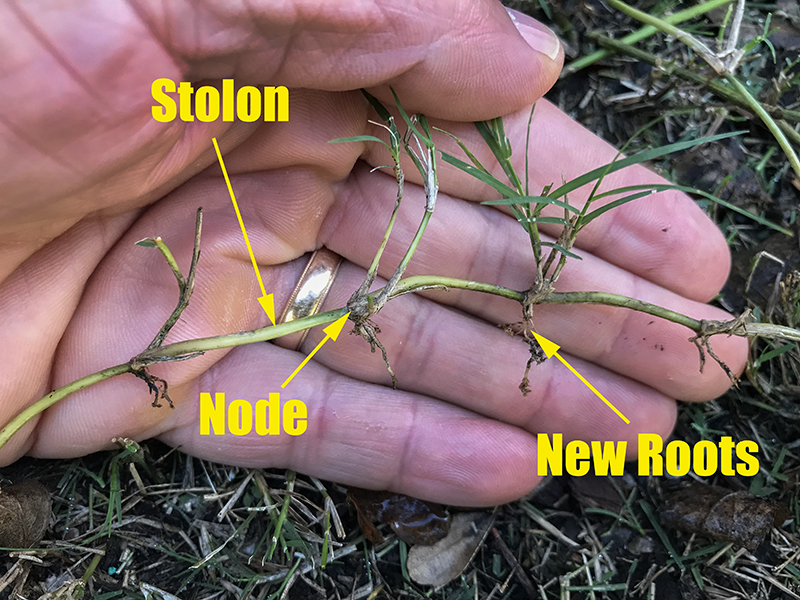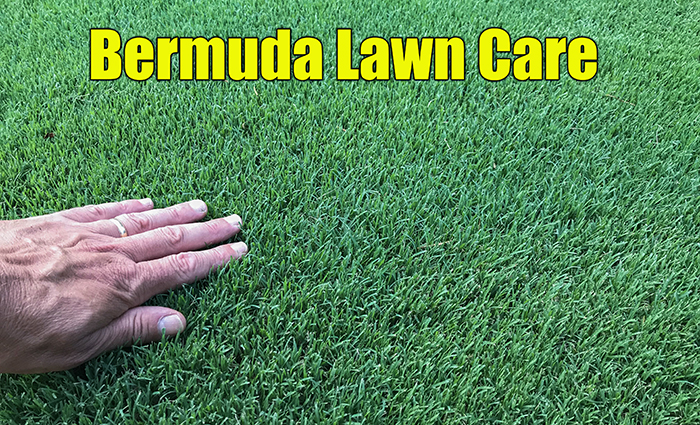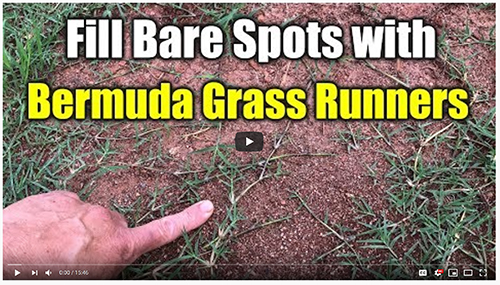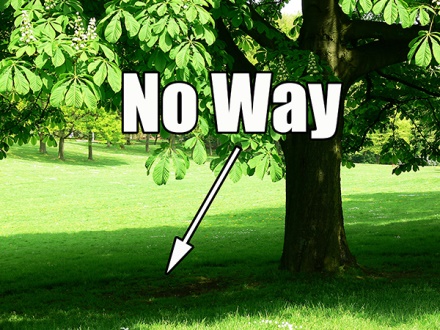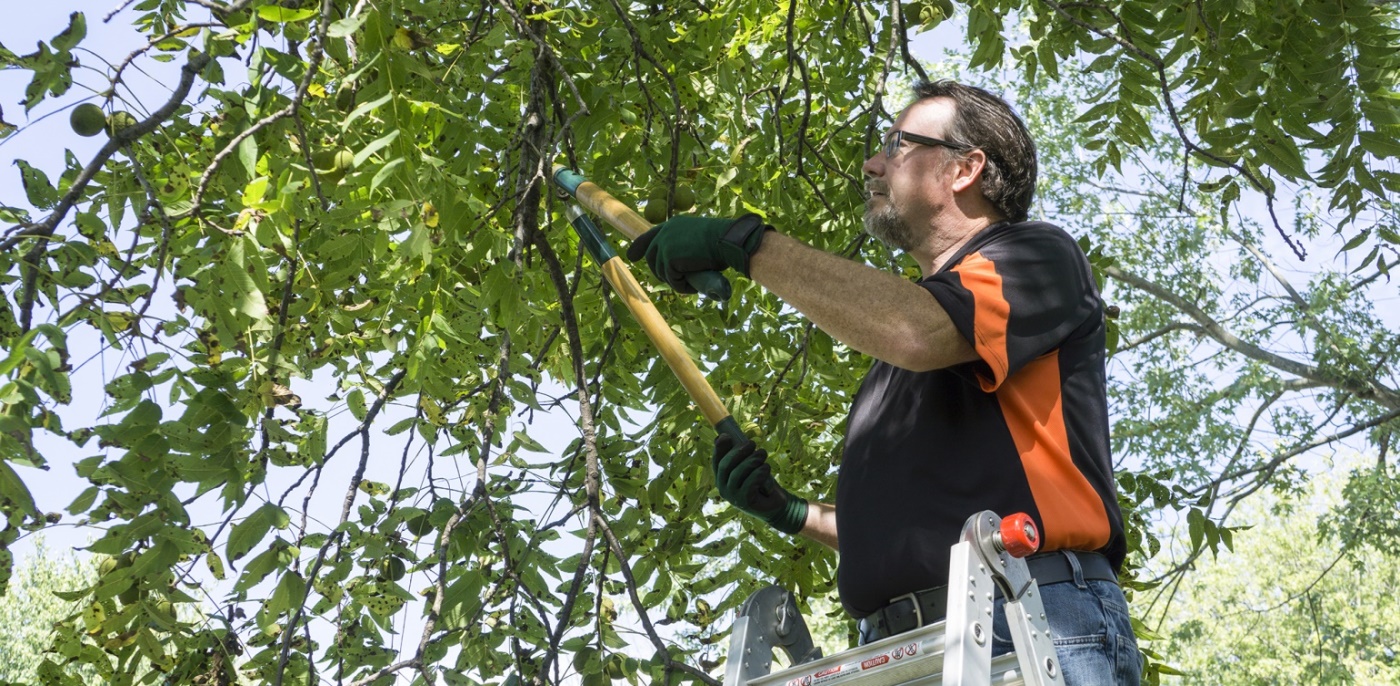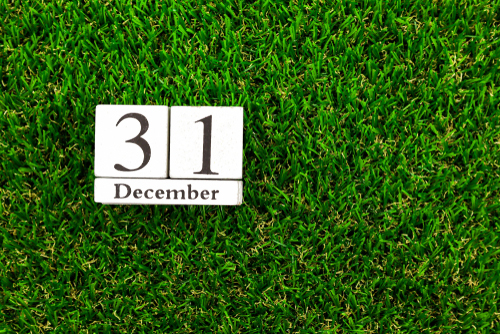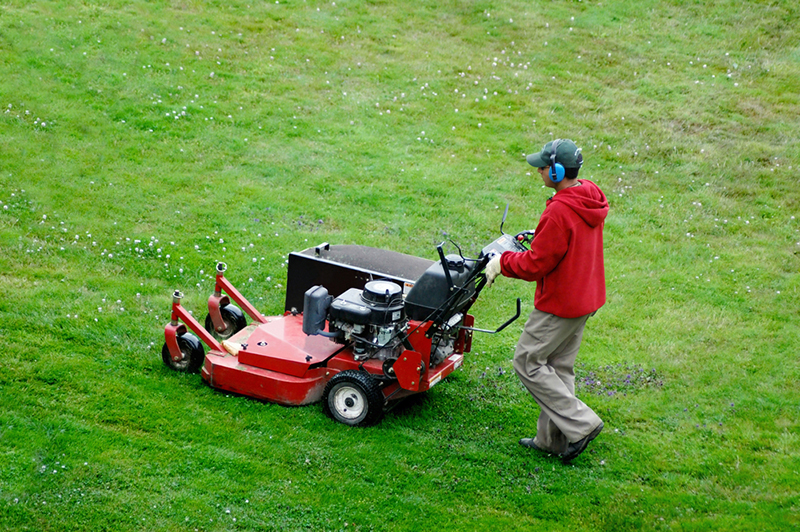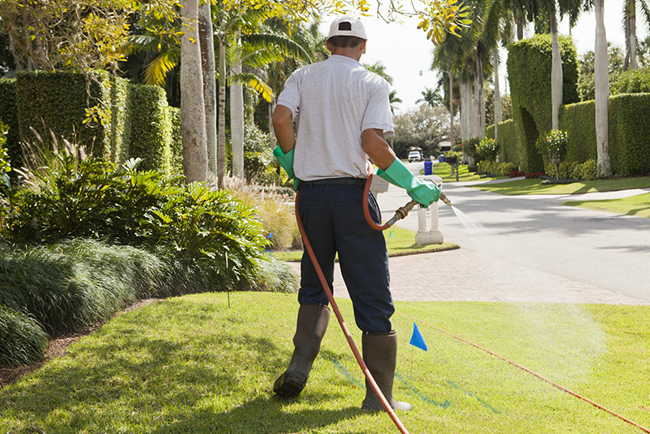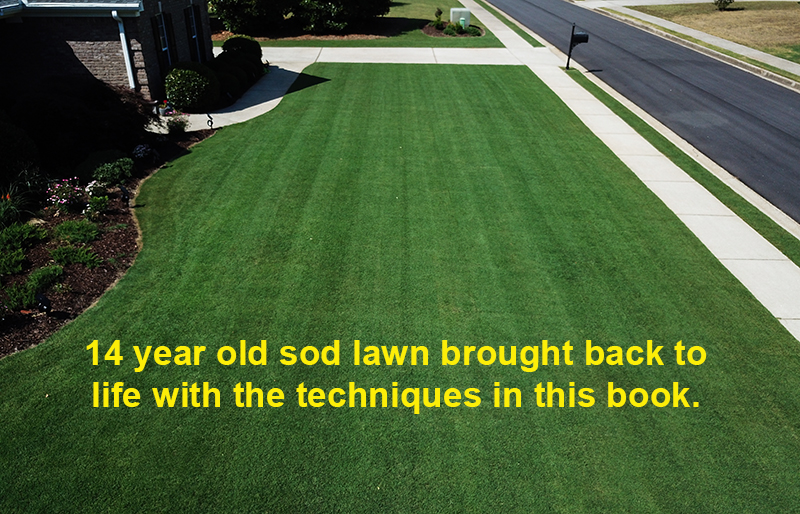Bermuda Seed – Sod – Basics
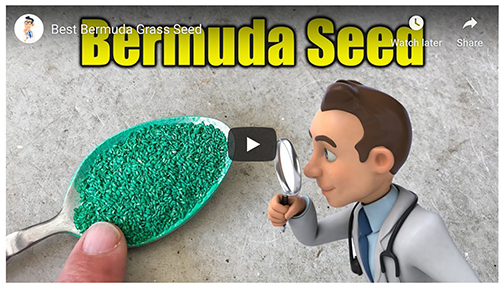 READ THE FULL GUIDE → HERE
READ THE FULL GUIDE → HERE
Hybrid vs. Common Bermuda
Generally speaking… in “Bermuda terms”
Hybrid means laboratory developed / bred and there is no SEED that can be planted to grow the grass. Most SOD is hybrid. Plugs are generally used grow it, it is cut up and sold as sod. Most hybrid is a very fine bladed grass and grows dense. Any seeds produced / grown are sterile.
Common Bermuda is used in fields and lawns. The seeds can be purchased easily and cheaply and the grass has a more “thick” blade and the grass looks course. It’s very cheap seed and does NOT produce a FINE think blade like sod or golf course turf.
The biggest mistake people make is over seeding SOD… grass with cheap COMMON Bermuda seed. You will see a texture and color difference and it will look strange. Even if you use high quality seed you will still be able to see a texture and color variation. Just be aware.
Specialty Seed – On the website we list HIGH QUALITY seed that “replicates” the look and growth patterns of hybrid Bermuda. If you MUST do some seeding, see those links. DO NOT be cheap on the seed. It’s what your lawn will be for years and years. THIS IS A LAST RESORT. 99% of Bermuda lawns can be restored because Bermuda is so aggressive. NOTE: ALL BERMUDA SEED SOLD BY THE LOWES AND HOME DEPOT IS COMMON BERMUDA. Most high quality Bermuda seed runs $7 – $35 a POUND… this seed gives you the fine texture you seek.
YOU CAN… over seed common Bermuda with the HIGH QUALITY seed and let the two battle it out. Keep it cut short and usually the fine blades will win if kept very short.
Time to Seed
The best time to plant new Bermuda grass seed is when daytime temps are in the 80’s. (Late spring / early summer.) This is the “sweet spot” but it also can be planted during the summer months if LOTS of water is available. Do not plant Bermuda seed in the early spring or fall. Use PGF Complete to fertilize the new seed at the bag rate of one bag 18 pound (not 40) per 5000 sq ft. DO NOT use a starter fertilizer. Use PGF Complete.
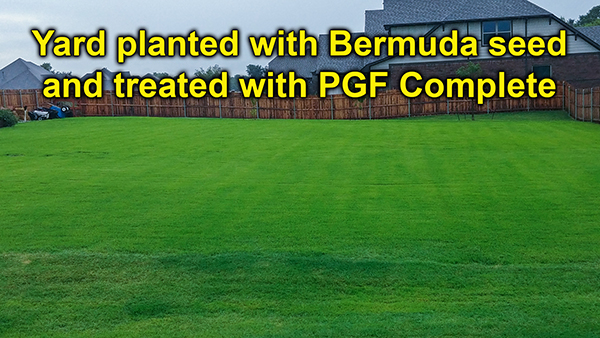
How to Seed
It’s best to treat the lawn for weeds (no pre-emergent for 3 months prior) at least 2-3 weeks BEFORE seeding and make sure there has been good rain or watering since the treatment. Weed killers MUST be gone first. You must have rain to wash away weed killers.
Heavily rake the area or rent a bladed DETHATCHER which will loosen up the soil and thatch. Bermuda seed likes to be 1/8” to ¼” deep. (Watch the video below)
Spread the seed with a HAND spreader at the rate shown on the bag or heavier.
Water 2-3 times a day lightly until the seed germinates, then once a day for the next 2 weeks. You want to make sure the soil stays moist through the early germination and growth.
Be GENTLE with the new Bermuda the first season. Use no weed killers for the first 2 months, then VERY sparingly the rest of the season. Deal with some weeds and just live with them. The following year we’ll deal with these including pre-emergent.
